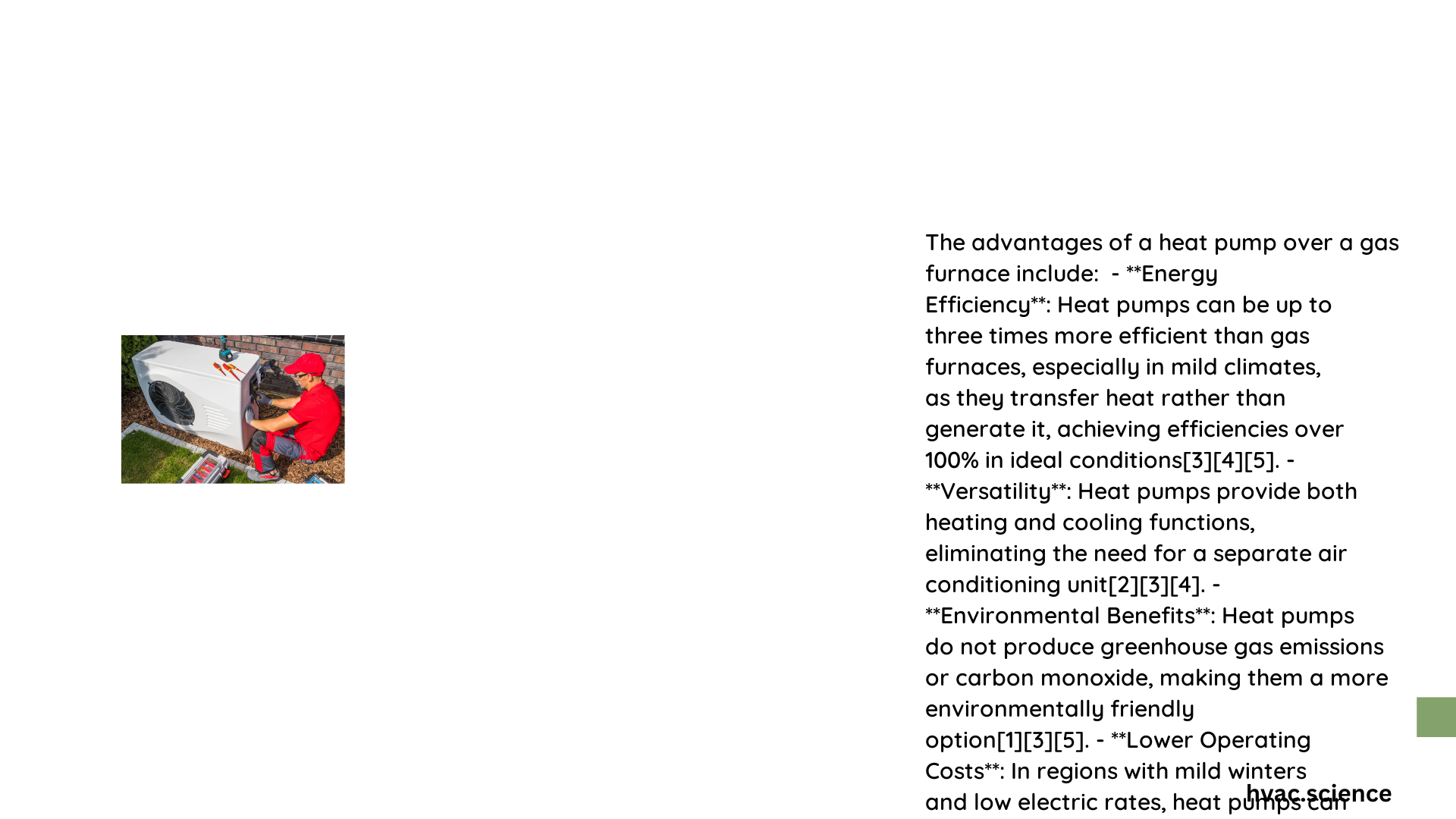Heat pumps represent a revolutionary heating technology that offers substantial advantages over traditional gas furnaces. By transferring heat instead of generating it through combustion, heat pumps provide superior energy efficiency, lower operational costs, reduced carbon emissions, and enhanced environmental sustainability. Homeowners can expect significant long-term savings, improved indoor comfort, and a more eco-friendly heating solution that adapts to varying climate conditions while minimizing energy consumption.
What Makes Heat Pumps More Efficient Than Gas Furnaces?
How Do Heat Pumps Achieve Superior Energy Performance?
Heat pumps demonstrate remarkable energy efficiency through their unique operational mechanism. Unlike gas furnaces that burn fuel to generate heat, heat pumps transfer existing heat energy from outdoor to indoor environments, requiring significantly less electrical input.
Key Efficiency Metrics Comparison
| Metric | Heat Pump | Gas Furnace |
|---|---|---|
| Energy Conversion | 200-400% efficient | 80-95% efficient |
| Annual Operating Cost | Lower | Higher |
| Carbon Emissions | Minimal | Substantial |
What Financial Benefits Do Heat Pumps Provide?
Long-Term Cost Advantages
- Reduced Energy Consumption: Heat pumps consume 30-60% less electricity compared to traditional heating systems
- Lower Utility Bills: Potential annual savings of $300-$800
- Tax Incentives: Eligible for federal and state renewable energy credits
Can Heat Pumps Perform in Extreme Temperatures?
Modern heat pump technologies have significantly improved cold-weather performance:
1. Advanced Compressor Design: Enables efficient operation at temperatures as low as -15°F
2. Dual-Fuel Hybrid Systems: Automatically switch between electricity and gas for optimal efficiency
3. Variable-Speed Technology: Provides consistent heating with minimal energy waste
What Environmental Impact Differentiates Heat Pumps?
Heat pumps offer substantial environmental advantages:
– Zero Direct Combustion Emissions
– Reduced Carbon Footprint
– Compatible with Renewable Energy Sources
– No Greenhouse Gas Production
How Reliable Are Heat Pumps Compared to Gas Furnaces?
Reliability Factors
- Fewer Moving Parts: Reduces mechanical failure risk
- No Combustion Components: Eliminates fuel-related maintenance
- Longer Operational Lifespan: 15-25 years with proper maintenance
- Advanced Diagnostic Capabilities
What Installation Considerations Exist?
Installation Complexity
- Moderate Initial Investment: $3,000-$10,000
- Flexible Placement Options
- Minimal Structural Modifications
- Potential Retrofit Opportunities
Are There Any Limitations?
While heat pumps offer numerous advantages, potential limitations include:
– Higher upfront installation costs
– Performance reduction in extremely cold regions
– Dependency on electrical infrastructure
Conclusion

Heat pumps represent a transformative heating technology that surpasses traditional gas furnaces in efficiency, environmental sustainability, and long-term cost-effectiveness. Homeowners seeking an intelligent, future-proof heating solution should strongly consider heat pump technology.
